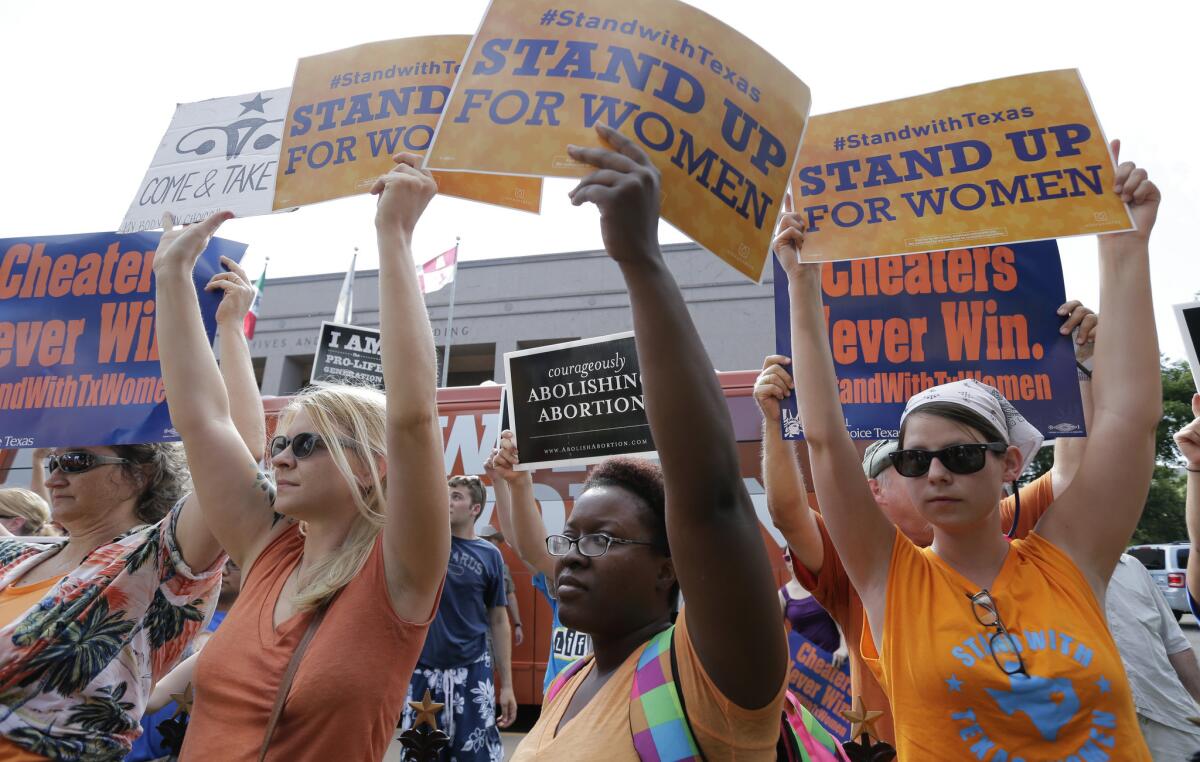Battle over abortion in Texas

A sharply divided Supreme Court on Tuesday allowed Texas to continue enforcing abortion restrictions that opponents say have led more than a third of the state’s clinics to stop providing abortions.
It’s disappointing that the Supreme Court denied a request to temporarily block an onerous new abortion law in Texas from taking effect while a federal appellate court determines whether the law is constitutional. The high court’s decision could force as many as a third of the abortion clinics in Texas to close, creating a hardship for thousands of women seeking to terminate their pregnancies.
The Supreme Court’s decision was the wrong one. Now supporters of abortion rights must turn their attention back to the appellate court, which we hope will declare the underlying law unconstitutional.
The law, signed by Gov. Rick Perry in July, requires doctors who perform abortions to have admitting privileges at a hospital within 30 miles of where they work. But some doctors don’t have privileges and would have to go through a difficult, lengthy process to get them, if they could get them at all. Without those doctors working, about a dozen abortion clinics in Texas will be forced to close and about 20,000 women a year will be unable to get abortions, according to abortion rights advocates. (This is the law that Democratic state Sen. Wendy Davis famously filibustered for 13 hours on the floor of the Texas Legislature.)
U.S. District Judge Lee Yeakel first ruled the law unconstitutional and issued an injunction against it. The judge wrote that whether an abortion provider had admitting privileges had no impact on the care that women received if they went to hospital emergency rooms after abortions. On the other hand, requiring admitting privileges for doctors put “a substantial obstacle in the path of a woman seeking an abortion,” he wrote. Some could be forced to travel 100 miles or more to find an open clinic, advocates have said. Within days of his ruling, a three-judge panel of the U.S. 5th Circuit Court of Appeals issued a stay of his injunction, thereby letting the law go into effect.
As this matter makes its way up the judicial ladder, the courts should consider that there is no valid medical reason for doctors performing abortions in clinics to have hospital privileges. In California, a new law allows trained medical professionals who are not even doctors and don’t have hospital admitting privileges to perform simple first-trimester abortions. The Texas law is not, as state legislators have argued, an attempt to keep women safe. It is an attempt to curtail their access to abortion. If it passes judicial muster, other states that oppose abortion rights will pass similar laws in order to deny women their constitutional rights. The courts should rule against this deceptive law.
More to Read
A cure for the common opinion
Get thought-provoking perspectives with our weekly newsletter.
You may occasionally receive promotional content from the Los Angeles Times.










